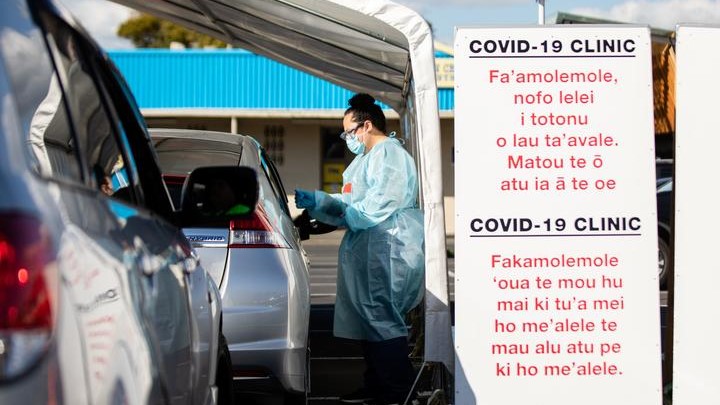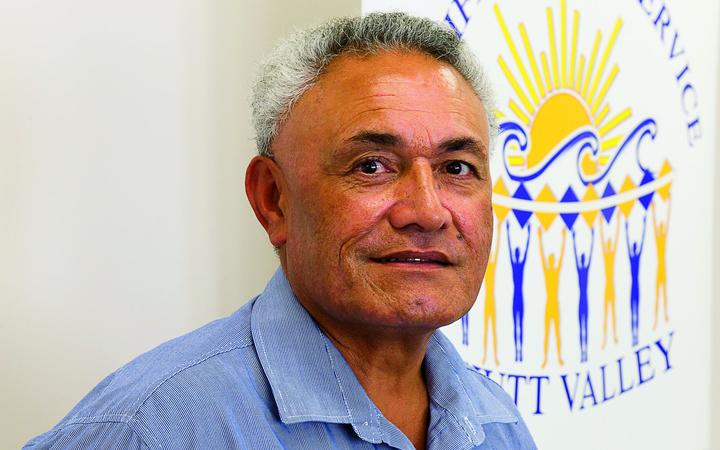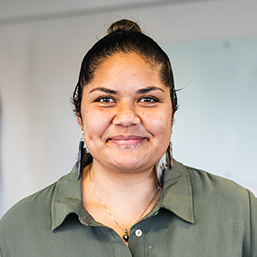Pacific social, health providers say they’re missing out
Thursday 10 March 2022 | Written by RNZ | Published in Pacific Islands, Regional

Photo: RNZ
Efforts to obtain funding to ramp up support for Pacific families in New Zealand during the pandemic is proving difficult for some Pacific-led social and health providers.
Buttabean Movement (BBM) founder Dave Letele said while BBM had no issues with resources, there were other Pacific providers "fighting for scraps" despite working on the ground to assist Pacific families.
"It's always been the way," Letele said.
"There's so many groups doing amazing work and you'd be surprised that some particular Pacific Island groups - which are the only ones doing that particular piece of work - get nothing," he said.
"The problem is it's always the same group of people that get the money. I'm not saying they don't do a great job. They do, but there's other groups out there too.
"Our people are always taught to be humble and bow our heads but it takes someone like me to stand up and now that I have that support from other Pacific groups I will speak up."
Pasifika disability health provider Vaka Tautua general manager Lara Dolan said their experiences with obtaining government support had been positive.
"We have a very good relationship, particularly with the Ministry of Social Development and Ministry of Health," Dolan said.
"They have been very responsive to meeting our needs and meeting community needs. But in saying that, we're mindful that there are some Pacific families who haven't fully recovered from lockdown," she said.
"Although the support that we are providing to the families currently is a temporary measure, we are working closely with government agencies such as MSD [Ministry of Social Development] and MoH [Ministry of Health] to find long-term solutions to support our Pacific families on the pathway towards social and economic prosperity."
Lower Hutt Pacific Health Service executive director Nanai Muaau said Pacific-led health services would continue to struggle to receive funding due to not being seen as equal to primary-health care providers.
"These services have a lot more closer contacts and relationship with our communities and families," Muaau said.
"Yet they don't get the similar amount of funding that primary care is getting for example or general practices, primary health organisations. So that is where the inequity is when it comes to funding," he said.

"And until such time we are considered as equal as those organisations, we will always struggle and that's a huge gap.
"If you look at the way funding has gone to general practices and primary health care organisations that is nowhere near what we're getting at the moment to provide that comprehensive wrap-around service for our vulnerable families out there."
The Ministry of Health's response to the Omicron outbreak requires people looking after themselves, and with Pacific families living in multi-generational households, the need for help while in isolation is greater.
Hāpai Te Hauora spokesperson Emmaline Pickering-Martin said the needs of Pacific families while in isolation was not just food, but also medical supplies, paying bills and keeping young people engaged in school.
Despite their best efforts to meet the families' needs, Pickering-Martin said the organisation did not have enough resources.
"We're an NGO [non-government organisation] and we survive off different funders and what we can get from the community," she said.

"Just last month we had a 'Back to Kura' initiative which was partially funded through Ministry of Education and in that we had $75,000 and from that we could only help 70 whanau but we had over 2000 applications."
When Hāpai Te Hauora approached the Ministry for Pacific Peoples (MPP) for funding to support Pacific school students, they were told the funds were already distributed, Pickering-Martin said. She believed well-known organisations were given first priority.
"I feel like sometimes the funding is earmarked," she said.
"Like it's not going towards organisations that don't have the biggest names and the biggest, what people would see as, 'reach', but if we're really wanting to get into grassroots and redistribute that money back to the community directly, then I feel like there's something missing in between MPP [Ministry for Pacific Peoples], the larger Pacific community organisations and then those that are on the ground doing the actual mahi," she said.
Asa Foundation chairperson Tuala Tusani also felt that funds were not distributed fairly.
"To me, the funding is not going to the right places where resources are efficiently used," he said.
"So while they say that all the money is going towards Pacific communities, groups or providers, it's not going towards the people that are doing the actual work."

A Pacific social service worker, who did not want to be named, said that accreditation played a huge part in providers obtaining funds.
"To be a recipient for some of these big funding, there is a bit of paperwork," he said.
"There is accreditation that you need to have. For example, you need a level two or level three social services accreditation but that shouldn't withhold someone from obtaining funds if they're doing the work day in and day out.
"At the end of the day, the money doesn't belong to us, it belongs to the people who need the support."
The Ministry for Pacific Peoples were approached for comment but had advised that they would respond following the minister's announcement next week.














































